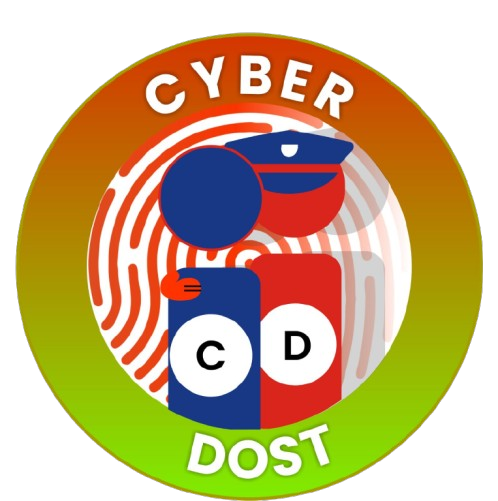Introduction
Child Rights Fellowship is a strategic collaboration between DCPCR and Ashoka University to engage young professionals in improving and supporting the agenda of Child Rights and Welfare in Delhi while driving mass impact on the ground.
Offered as a one-year experiential learning fellowship by Ashoka University, 5 young professionals work closely with DCPCR and relevant government stakeholders to de-bottleneck implementation challenges and drive accountability and efficiency in the domain of child rights.
The fellows are guided by a robust support system through a Program Management Unit (PMU) which includes three Deputy Managers. The following are the projects currently being undertaken by the team:
The First Cohort of Child Rights Fellowship (CRF) commenced with 5 fellows from March 2021 and shall continue till March 2022.
Projects
1. Health and Nutrition:
The objective of the Health and Nutrition project under CRF is to build end-to-end mechanisms to strengthen all services for children in Anganwadi Centres to access optimum services to which they are entitled, and create a safe environment for them to learn and grow. The CRF team runs multiple projects in this regard, including technical analysis of the Poshan Tracker application and livetracking of data recorded by frontline workers to ensure efficient and effective recording of information of services being provided to beneficiaries.
Another focus area under the project is to strengthen routine immunisation of children. Under the Commission’s guidance, the team works closely with the Department of Health and Family welfare, Govt. of NCT of Delhi, to identify bottlenecks & process gaps in routine immunization of children, and create awareness for the same through IEC which include newspaper advertisements, mass calling and pamphlet distribution, along with monthly surveys to check progress and gauge the uptake.
Going forward, the project will focus on two key areas - 1) Streamline the usage and implementation of the Poshan Tracker, and, 2) Propose innovative methods to strengthen the health of children at home, neighbourhood, Anganwadis and schools.
2. Education:
The objective of the Education project under CRF is to reduce dropout rates in government schools in Delhi and increase the overall attendance rates in schools. To enable this, the CRF team has 3 focus projects - 1) track absenteeism through the use of technological interventions, 2) assess reasons for high dropout rate in 9th grade, and develop measures to tackle the same, and, 3) provide mental health counselling support to students.
To track attendance in schools, the team in coordination with the Directorate of Education, Govt. of NCT of Delhi, is developing an Early Warning System for government schools to track early signs of absenteeism and develop interventions. These interventions include phone calls and home visits to ensure children attend schools regularly. A survey is also being designed to ascertain the dominant reasons resulting in high dropout rates in Grade 9, which will be complemented by data analysis of enrollment rate and pass percentage. Alongside, we have partnered with counsellors to provide tele-counselling support to students for their mental health issues amidst the COVID-19 lockdown.
Going forward, the project will focus on further interventions to increase student attendance and develop mechanisms for holistic learning and development of the children.
3. Strengthening Juvenile Justice Institutions
As per the Juvenile Justice Act, 2015 there are certain designated institutions that collectively ensure well-being of the children in need of care and protection and in conflict with law including Child Care Institutions (CCIs), Child Welfare Committees (CWCs), District Child Protection Units (DCPUs), and Juvenile Justice Boards (JJBs). The objective is to ensure that these institutions are empowered and their capacity developed for better care of the children.
- Reading Campaign: An initiative to improve reading and foundational numerical literacy in CCIs, while providing psychological and learning support. Currently, after a successful pilot in 5 CCIs, the CRF team is scaling up the campaign in 30 CCIs of South and South East districts, to be eventually expanded it to all the districts of Delhi.
- The Need Assessment Management Information System: Project launched to identify and escalate needs of CCIs such as medical needs, ration, infrastructure, etc. to the relevant bodies for efficient and prompt resolution. The CRF team drives the CCI escalation dashboard, provides technical support to CCIs and ensures escalation of alerts to District Task forces for every CCI.
- The Juvenile Justice Management Information System (JJMIS): JJMIS aims to capture real time information and track the well being of all children produced in front of CWCs and JJBs for 2 objectives - 1) Ensure digitization of record keeping, and, 2) Generate alerts to nudge stakeholders into action according to predetermined timelines. Furthermore, the JJMIS will also serve as a tech-based monitoring system of all CCIs in Delhi.
Going forward, the team will aim to create better after-care provisions for children through vocational training, upskilling programmes, etc. as well as psychosocial support initiatives in CCIs.
4. Prevention and Rehabilitation of Children from Substance Abuse
The objective of this project is to ensure that children, whilst enrolled in de-addiction centres, are provided learning opportunities, training for future employment, psychosocial support and life skills. The Commission aims to work on a multipronged approach by addressing children’s rehabilitation needs.
The CRF Team has organised counselling sessions through a partnership with Protsahan, an NGO which provides mental health support to children, and creates a safe space for children impacted by the second-wave to talk to someone. During these sessions, CRF also undertook intensive capacity-building of counsellors to train them to properly deal with children coming from sensitive and vulnerable backgrounds.
Going forward, the project would facilitate further interventions to adequately equip de-addiction centres and institutions housing children in conflict with law with every tool to reduce the relapse of children suffering from substance abuse including improving foundational literacy and numeracy in children, vocational training and upskilling, and increasing avenues for psychosocial support.


 दिल्ली बाल अधिकार संरक्षण आयोग (डी.सी.पी.सी.आर)
दिल्ली बाल अधिकार संरक्षण आयोग (डी.सी.पी.सी.आर) 


